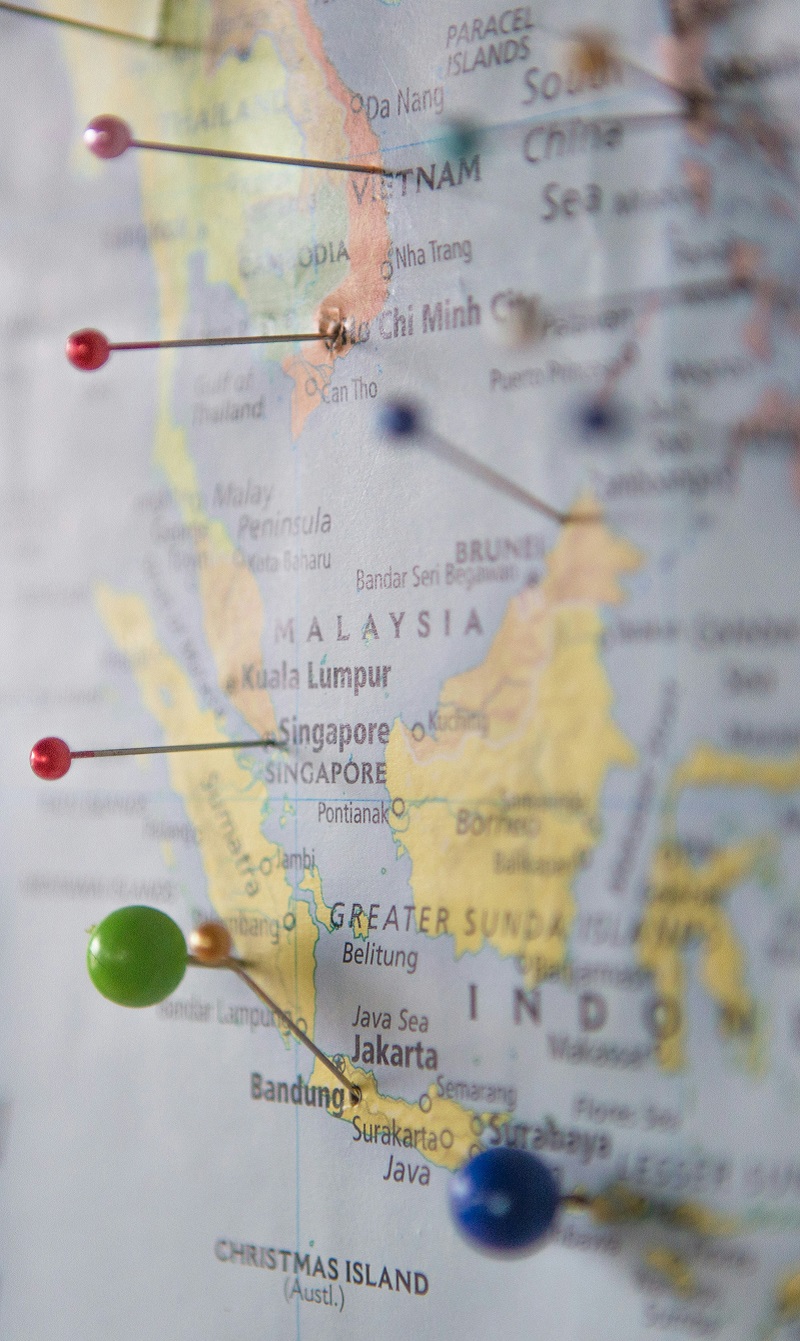Seizing the Africa opportunity
Islamic finance supports infrastructure development and reaches out to unbanked Muslim population
When the founder of a startup in Senegal or Guinea walks into a commercial bank to apply for credit, the standard response they can anticipate is a curt ‘no’. Commercial banks prefer to grant loans to large companies in manufacturing and agribusiness. For those customers, interest rates can be comparably low and the maturity rates long. However, many companies that could add value to the local economy are automatically barred from seed capital.
It’s a classic conundrum when trying to do business in sub-Saharan Africa. Small-and medium-sized enterprises aren’t lacking in good ideas; the issue is how to turn them into bankable projects. Before getting to ‘yes,’ conventional banks require a long-term plan, certified accounting and guaranteed funds. The SME can otherwise morph into a non-performing loan.
Though Islamic finance is still at the embryonic stage in Africa, the demographics and growth potential are a draw. The continent is currently home to 250 million Muslims, a figure that could rise to 386 million by 2030. At end-2012, there were 38 Islamic financial institutions on the ground, including the takaful insurance companies. Egypt, Sudan and the countries of the Maghreb are acting as beachheads.
For cash-strapped governments in sub-Saharan Africa, tapping the sukuk market to fund public infrastructure is also a tempting option. The shortage of roads, seaport terminals, fiber-optic cables and sanitation networks stands in the way of the sustained growth required to realise the dream of graduating into middle-income economies. While conventional bondholders own debt, the sukuk offers ownership stakes in tangible assets.
According to the International Finance Corporation (IFC),
only one-half of the USD 90 billion in annual infrastructure needs in sub-Saharan Africa had a source of funding as of 2015.
The World Bank puts the funding gap through 2020 at between USD 31 billion to USD 48 billion per year.
As Islamic banks ponder the best market strategy for sub-Saharan markets, SME finance and the modernisation of infrastructure are going to be key part of the appeal of Islamic finance is its innovative toolkit. But the social justice and financial inclusion aspects are already laying the groundwork.
Continental build-up
Attuned to realities on the ground, Islamic banks see country borders in Africa as doorways to new opportunities rather than as barriers. The global financial crisis and the subsequent sovereign debt crisis in Europe diverted financial flows to the southern hemisphere. Now, the money is trekking into the heart of Africa.
From 2011 to 2015, seven out of the ten fastest-growing economies in the world were in sub-Saharan Africa. In 2013, Senegal was borrowing capital in international markets at a lower interest rate than Portugal and Zambia was borrowing more cheaply than Spain.
Petroleum-producing countries such as Nigeria are natural targets for Islamic banks. So are the dynamic economies of South Africa, Ghana, Kenya and Tanzania, all of them with Muslim minorities. There is even market scope in smaller states such as Guinea, Liberia and The Gambia, which has already issued a sovereign sukuk.
In Zambia, where Muslims account for only 3 percent of the population, the government is interested in Islamic funding vehicles to develop its copper mines. Meanwhile, the central bank of Uganda, where Muslims account for 12 percent of the population, has licensed three Islamic banks to help diversify the domestic financial system.
South Africa was the first jurisdiction to grant a banking license to an Islamic institution in 1989. With a Muslim minority of only 1.5 percent, it is widely seen as a future hub for Shariah-compliant banking because of the sophistication of its financial markets.
Nigeria, with nearly 50 percent of its population of 177 million professing Islam, has vast potential. The central bank has adopted regulatory directives for Islamic banks and has set up a special advisory council to oversee sector performance. Still, Jaiz International Bank is the only full-fledged Islamic bank with a license.
Islamic finance made its way into Kenya in 2007. But Islamic banking windows have been in place there since 2005. With a Muslim population of 11 percent, Kenya threw open its doors with the Finance Act of 2010, which recognised that the payment of Shariah-compliant returns for government securities are equivalent to interest payments on similar conventional instruments. Three years later, Islamic banks already had a market share of 2 percent.
Mauritius, ever the trailblazer, has had an Islamic credit union since 1998. The Al Barakah Cooperative Society offers murabaha trade credit schemes, savings accounts for pilgrims and istisna’a – deferred delivery purchases. The Banking Act of 2007 legalised Shariah-compliant transactions for property and the Finance Act of 2008 gave the green light to Islamic investment funds. Today, the island nation is positioning itself as an Islamic financial hub.
The African Sukuk
“Infrastructure investment continues to be the single most catalyzing opportunity to boost industrial development and job creation in Africa,” Hubert Danso, CEO of Africa Investor, told fellow panelists at an IFC summit in Cape Town last June.
The issuance of sukuk to modernise African infrastructure would not only bring down fiscal deficits, but could foster industrial development in the region. The asset-based Islamic bonds could allow governments to finance multi-billion dollar infrastructure projects while bypassing the debt traps of concessional loans or Chinese ‘package deals’.
With global issuance at USD 120 billion in 2013, sukuk is about real assets and risk sharing. Instead of funding large scale infrastructure projects by accepting low-interest loans from China’s Exim Bank, as many African countries have done, sukuk can be tailored to infrastructure build-out in the continent’s high-growth economies.
For African governments, the attraction of sukuk is that the Islamic banks that buy them typically hold onto these securities until maturity. This makes them a more stable investment for everyone, including conventional investors, who view sukuk as a source of diversification. The lender also takes on added responsibilities to prevent excessive risk.
Since the nations in sub-Saharan Africa began exploring global bonds over the last decade, several have ventured into the territory of the sovereign Sukuk. In 2013, the state of Osun issued Nigeria’s first sukuk, valued at USD 62 million. Nigeria and South Africa have since passed laws to ensure that sukuk are given the same tax treatment as conventional bonds. The Gambia has issued a local currency sukuk and Senegal followed suit in 2014 with a USD 200 million issue.
Officials at the Islamic Corporation for the Development of the Private Sector (ICD), a unit of the Islamic Development Bank and one of the arrangers of the Senegal issue, said in May that they were in talks with Nigeria and the Ivory Coast about potential future sukuk issues.
Breaking down barriers
In a continent in which only 25 percent of the population has a bank account, but 8 out of 10 people have mobile phone access, innovative Islamic retail products may be the winning formula. Mobile banking is a low-cost option that allows retail banks to scale their products across markets.
In 2007, Kenya was one of the first African nations to use the mobile phone to settle payments. Known as M-Pesa, the application launched by Safaricom currently transfers money for 16.5 million consumers. It has also spun off a banking startup, M-Shwari, with USD 1.6 billion in deposits.
Equipped with the financial tools to work in markets where the bulk of the population is unbanked, the USD 1.7 trillion global Islamic financial industry can also further sub-regional economic integration in ways that political institutions have failed to do. Lending across jurisdictions, in turn, will create a more diverse credit landscape and lower the cost of finance.
In the meantime, the Islamic finance industry is opting for the tested route of Islamic windows at conventional retail banks. By doing so, they avoid having to apply for licenses from central banks, a complex proposal for a business model that often falls outside the regulatory framework.
In the future, conventional banks will need to compete with a financial actor that is not only lithe, but attracts consumers into its network via a belief system. The Shariah precepts of pooled resources and the prohibition of speculation could prove better at matching borrowers and savers. African economies would then operate on much less leverage.
Today, obtaining credit for a new business may seem like a lost battle in Senegal, Guinea and many other countries in sub-Saharan Africa. But the entry of Islamic banks into the market will channel funds from global investors that could revolutionise retail products for the continent’s SMEs. Getting to ‘yes’ will still prove difficult, but it will no longer be impossible.
___________________
This article originally appeared in a special publication by The Worldfolio produced in conjunction with the 11th World Islamic Economic Forum.





